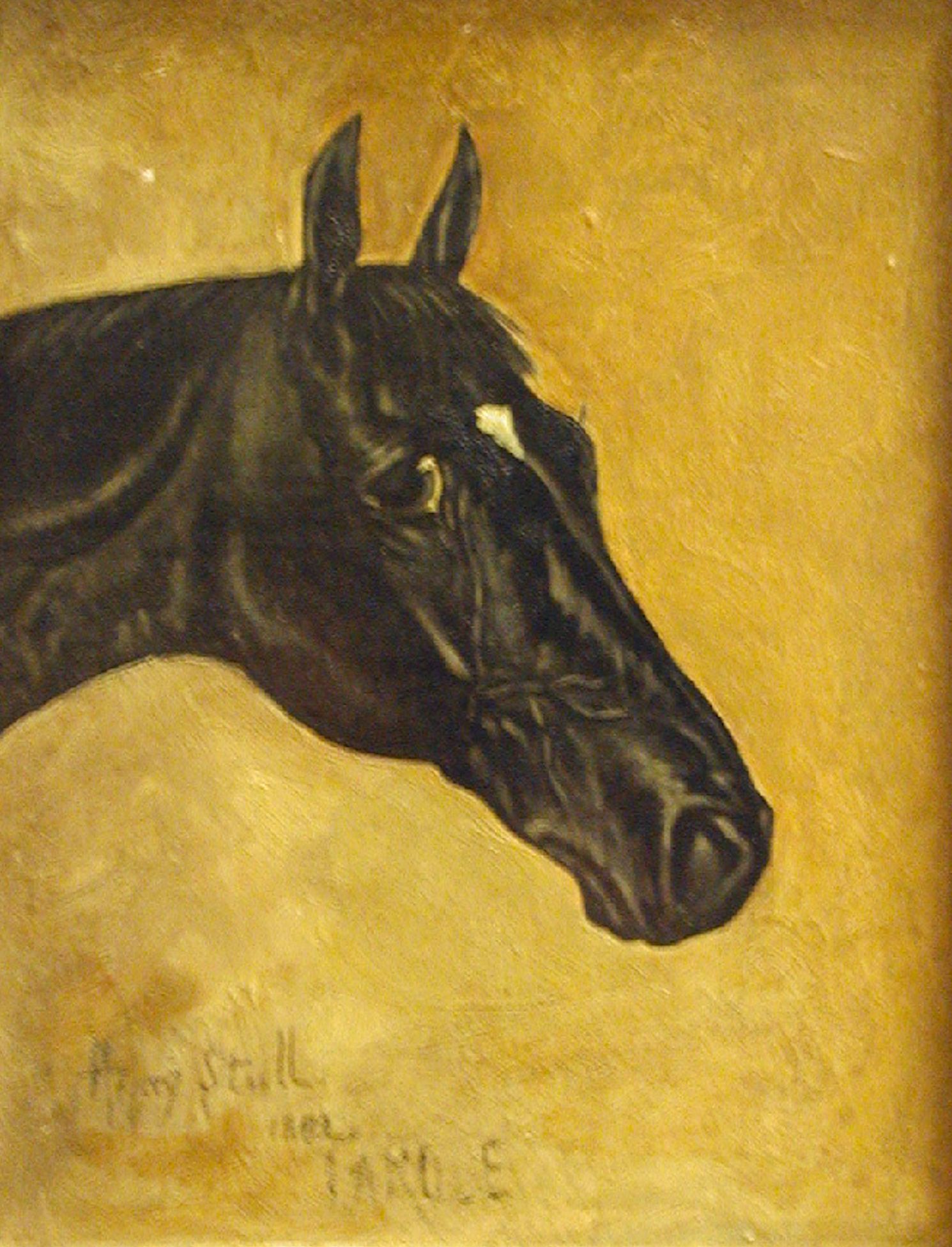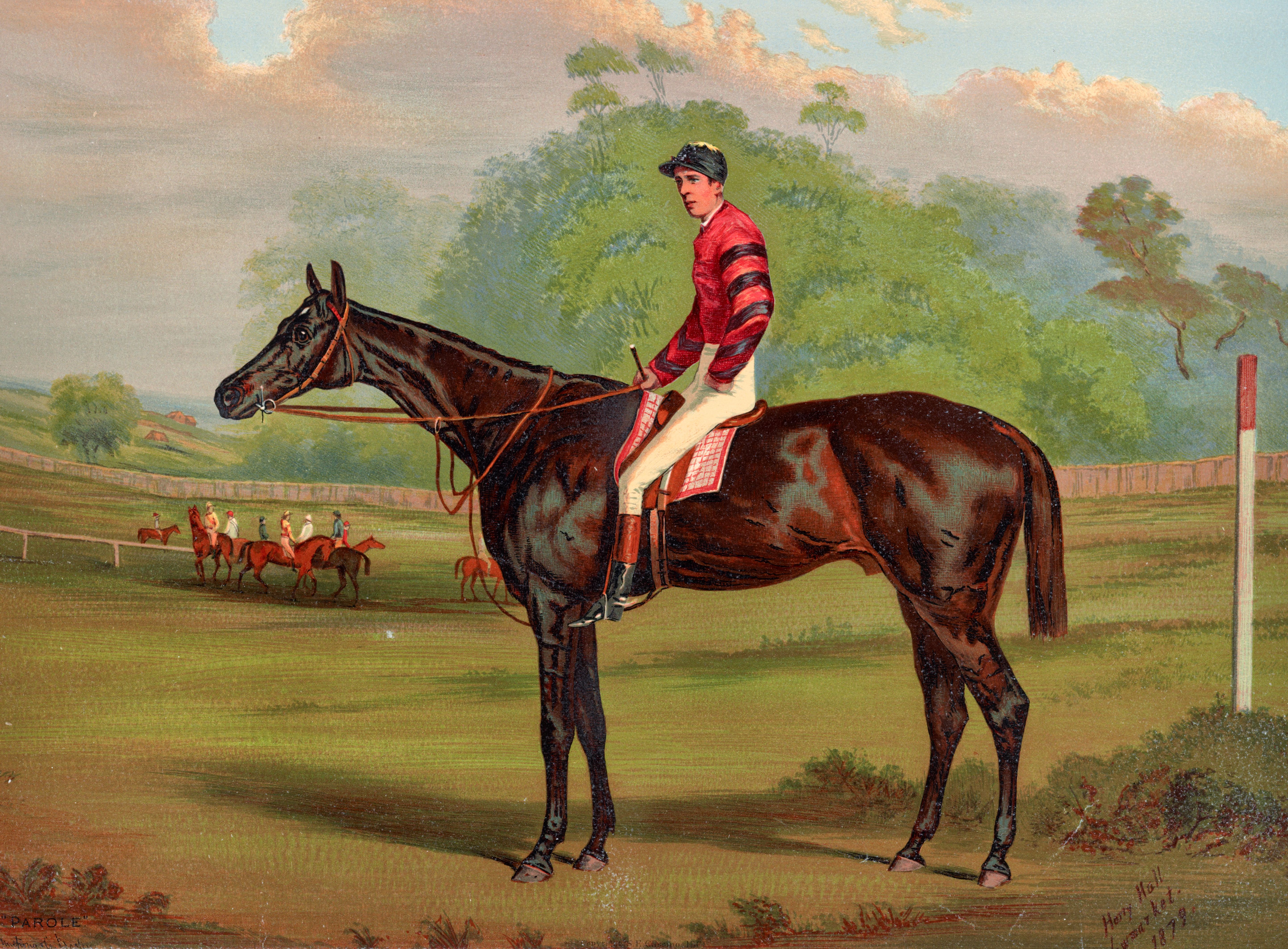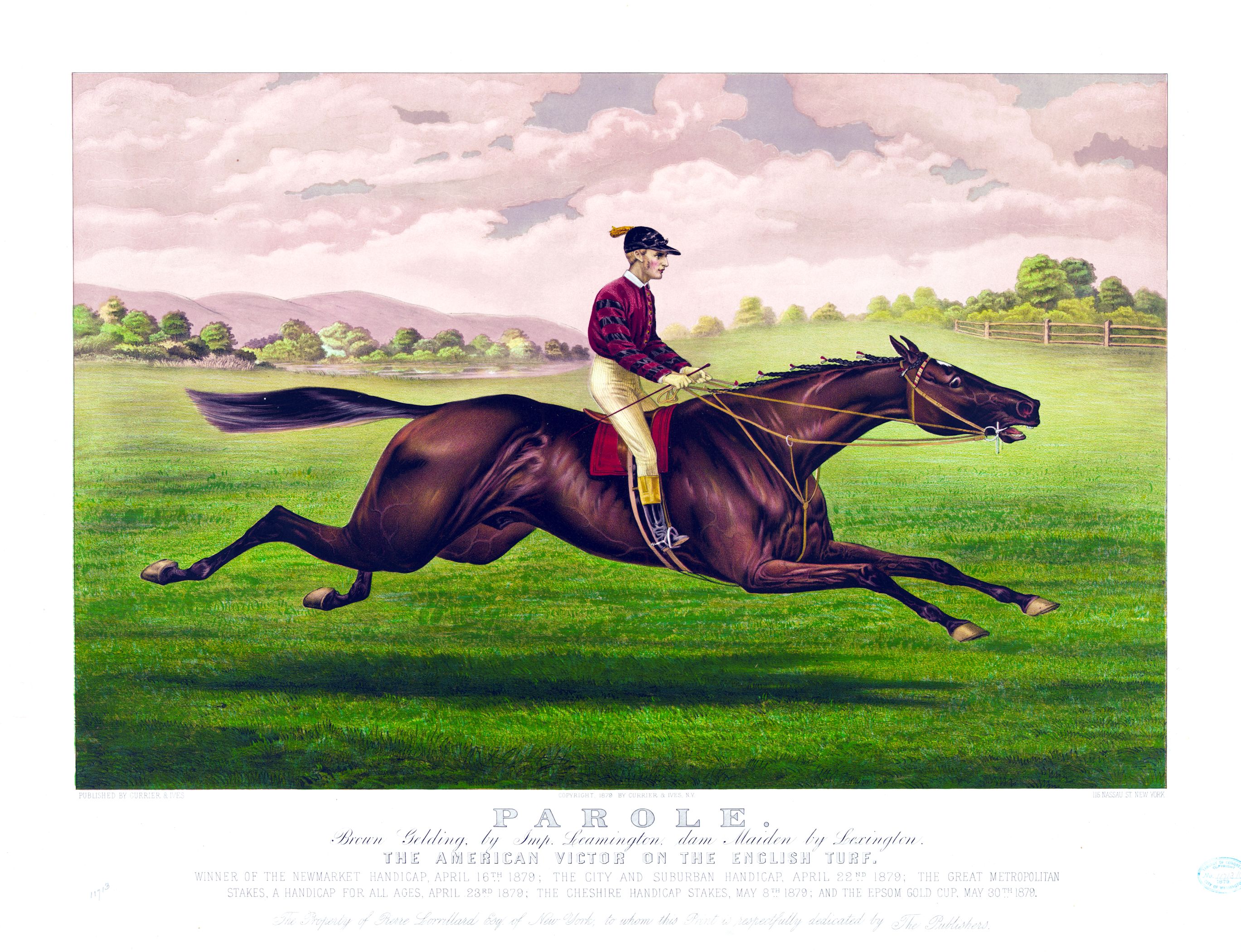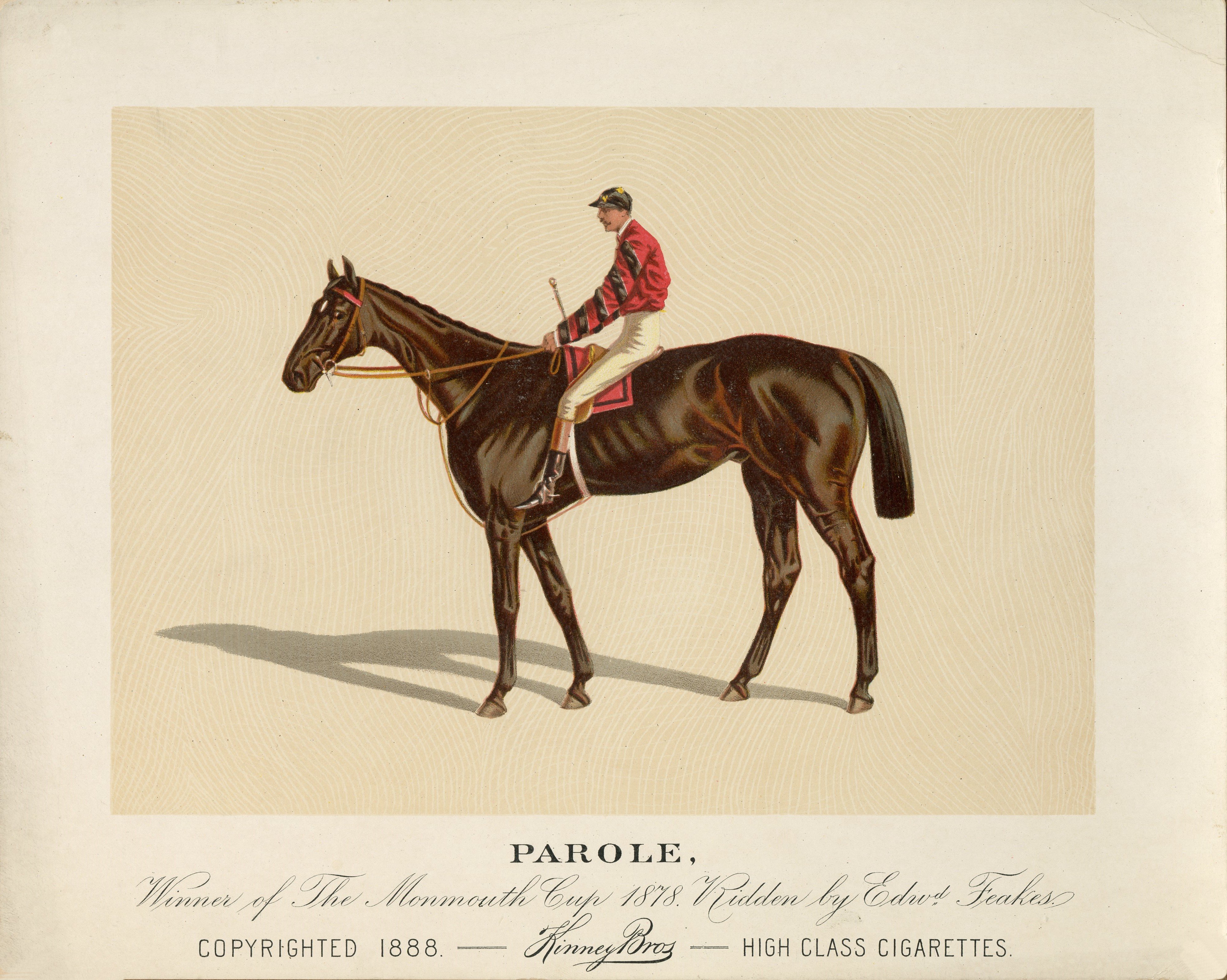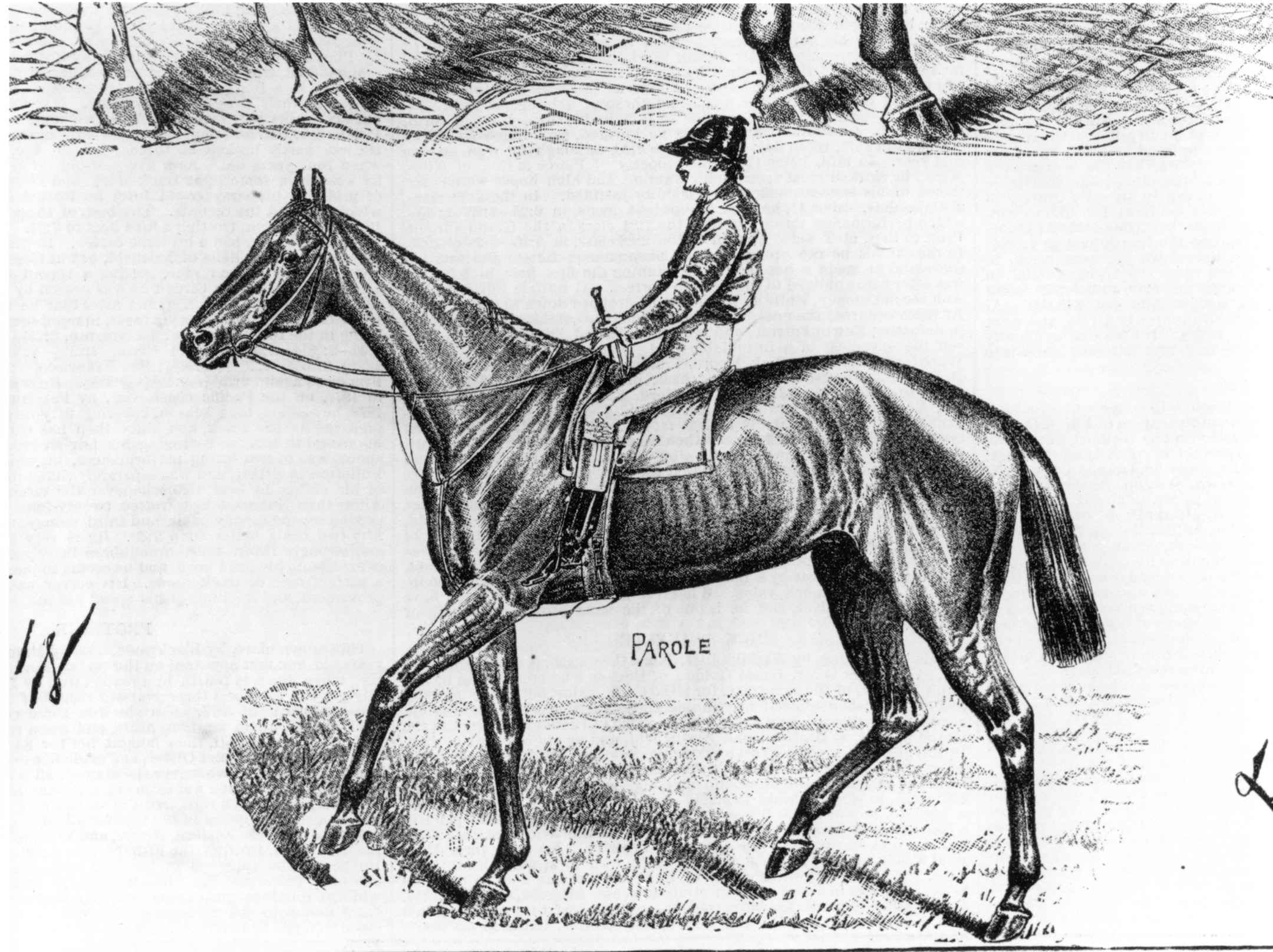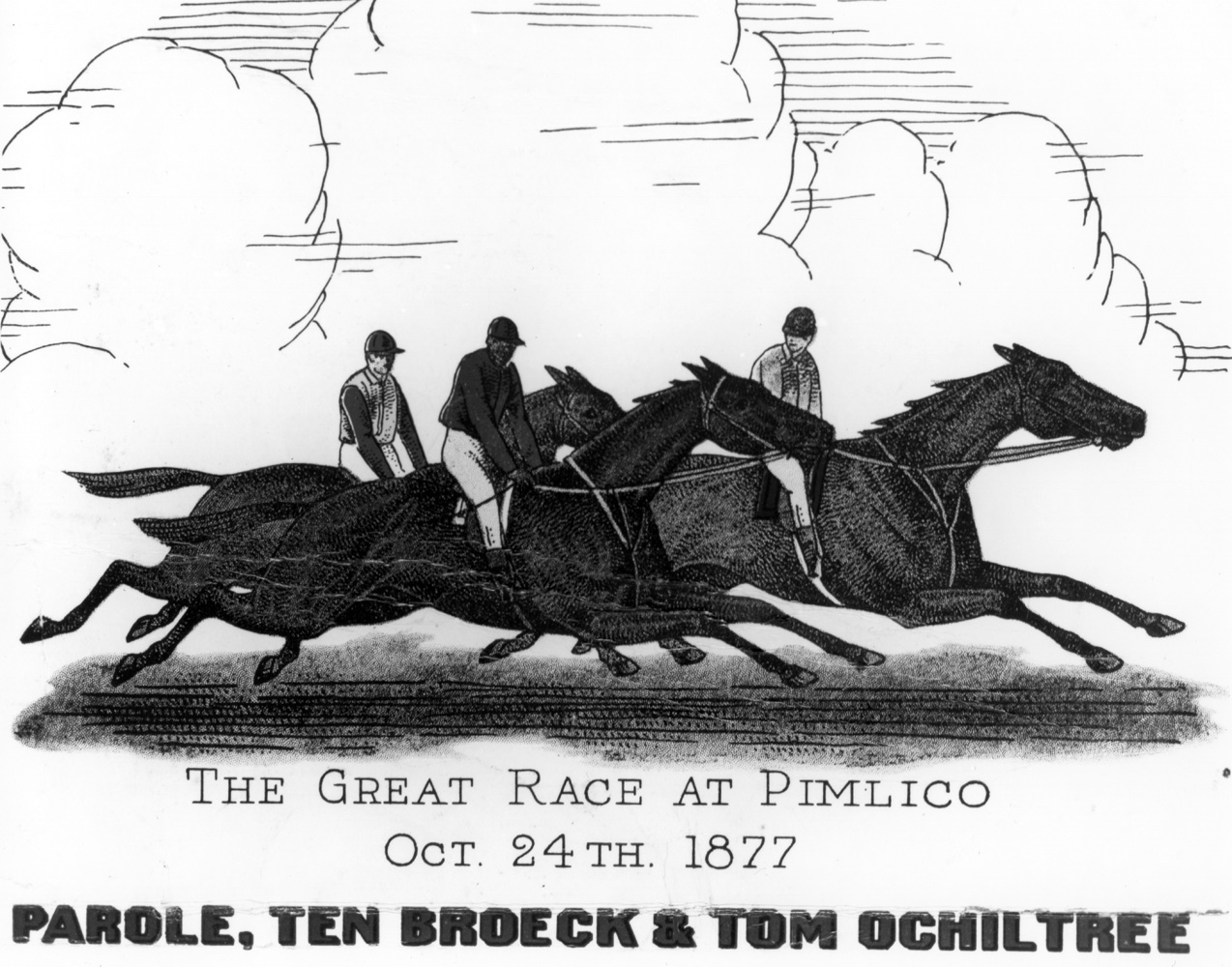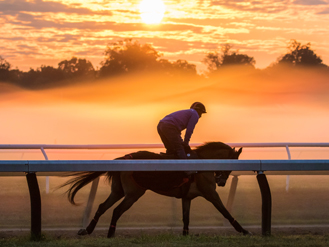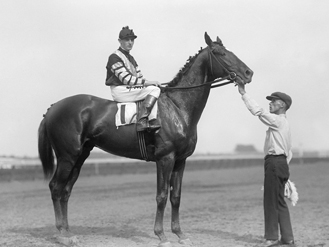Parole (PA)
Revered as an equine hero in both America and England, the mighty Parole cemented his legacy as one of the finest racehorses of the 19th century during a fascinating 11-year career that was defined by durability, determination, and a series of masterful performances in marquee events.
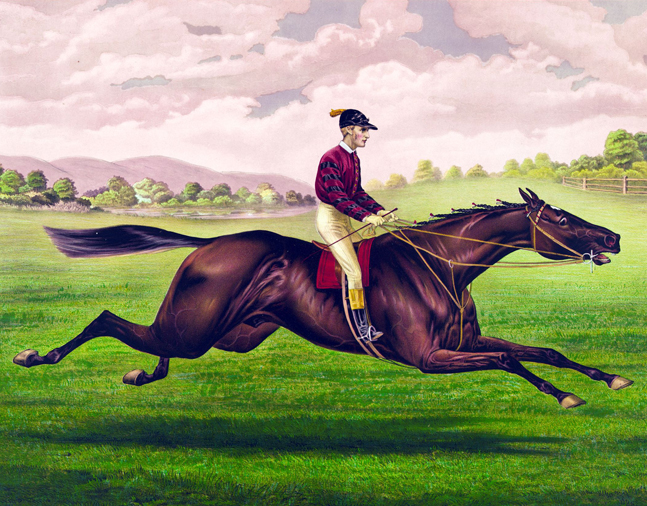
1984
1873
Leamington
Maiden
Lexington
Aristides Welch
Pierre Lorillard
Matthew Byrnes Jacob Pincus
1875-1885
$82,816
Racing Record
138
Starts
| 1975 | 6 | 4 | 1 | 0 | $8500 $8,500 |
| 1876 | 7 | 3 | 2 | 0 | $8103 $8,103 |
| 1877 | 12 | 8 | 3 | 1 | $14940 $14,940 |
| 1878 | 10 | 8 | 1 | 0 | $84580 $84,580 |
| 1879 | 11 | 5 | 0 | 1 | $19403 $19,403 |
| 1880 | 14 | 4 | 2 | 1 | $1675 $1,675 |
| 1881 | 24 | 12 | 4 | 4 | $9820 $9,820 |
| 1882 | 21 | 8 | 2 | 6 | $5025 $5,025 |
| 1883 | 21 | 7 | 7 | 3 | $6195 $6,195 |
| 1884 | 1 | 0 | 0 | 0 | $0 $0 |
| 1885 | 11 | 0 | 6 | 1 | $705 $705 |
Biography
Revered as an equine hero in both America and England, the mighty Parole cemented his legacy as one of the finest racehorses of the 19th century during a fascinating 11-year career that was defined by durability, determination, and a series of masterful performances in marquee events.
A foal of 1873, Parole was bred in Pennsylvania by Aristides Welch at his Erdenheim Stud near Philadelphia. Parole’s pedigree was a fashionable one, as he was a son of Leamington out of the Lexington mare Maiden. Leamington was America’s leading sire in 1875, 1877, 1879, and 1881. When Leamington topped the stallion list in 1875 it ended a 14-year reign for Lexington atop the leaderboard. Maiden was accomplished in her own right, winning the second edition of the Travers Stakes in 1865.
Although the breeding was considered impressive, Parole’s appearance was not. The brown gelding was referred to as “the Yankee mule” by writers in England and was said to be “light-necked, rough-coated, leggy, and curby hocked.” However, what Parole lacked in looks he more than made up for with his talent.
Owned by Pierre Lorillard and trained by Hall of Famer Matthew Byrnes, Parole arrived at the races as a 2-year-old in 1875. He won the July Stakes and August Stakes at Monmouth Park before heading to Saratoga and winning the Saratoga Stakes and Kentucky Stakes. Parole was generally considered the best 2-year-old in his crop.
As a 3-year-old, Parole defeated Hall of Famer Tom Ochiltree in the All-Aged Sweepstakes at Saratoga. He also won the Sequel Stakes at the Spa and the Excelsior Stakes and All-Aged Stakes at Jerome Park. Although not as consistent as during his juvenile campaign, Parole still showed plenty of ability as a sophomore.
Parole’s achievements at ages 2 and 3, however, were merely a footnote in a lager tale and a prelude to future brilliance and international fame.
Parole became a sensation as a 4-year-old in 1877, winning the 2½-mile Woodburn Stakes, the 2¼-mile Saratoga Cup, the 1¾-mile Summer Handicap, and the Maturity Stakes at three miles. Parole, however, wasn’t alone in his brilliance that year. Tom Ochiltree defeated Parole in both the Grand National Handicap and the All-Aged Stakes, while Ten Broeck was busy fashioning a 15-race win streak, which included multiple American speed records.
When Parole, Ten Broeck, and Tom Ochiltree met Oct. 24, 1877, in the “Great Sweepstakes” at Pimlico it was an event that entranced the nation. Congress adjourned for the day to attend the race and the sport had not received such widespread attention since the great rivalry between Harry Bassett and Longfellow in 1872.
Ten Broeck was a heavy favorite with Tom Ochiltree the second choice and Parole considered by many an afterthought for the $2,500 purse at 2½ miles. Racing historian Walter Vosburgh described the scene: “They passed the half-mile stand amid cheering that might have been heard in Monument Square, the Eastern men cheering, the Western followers of Ten Broeck yelling like demons. It was cheers answering cheers, like the noise of contending armies. Suddenly as they turned the last quarter pole, there arose a cry … ‘Look at Parole!’”
Ten Broeck led for the first two miles before Parole found another gear and romped home a five-length winner with Tom Ochiltree a distant third. Lorillard offered Ten Broeck’s owner, John Harper, another chance with a match race at Jerome Park. Ten Broeck, however, trained poorly and Harper paid a forfeit. Parole walked over for his eighth and final win of the year, pushing his earnings for the year to $14,840.
Parole was in top form again as a 5-year-old in 1878, winning the Baltimore Cup (2¼ miles), Monmouth Cup (2¼ miles), and his second consecutive Saratoga Cup (2¼ miles). He finished the year with a record of 8-1-0 from 10 starts with purse earnings of $8,450 and was once again regarded as the top older horse in America.
Lorillard wanted to take a shot at racing in England in 1879. He purchased the outstanding Duke of Magenta from his brother, George, to run against the best English competition. Duke of Magenta had been America’s dominant 3-year-old the prior year with wins in the Preakness, Belmont, Travers, Withers, and Jerome, among others. Lorillard brought Parole along for the trip, but Duke of Magenta was supposed to be the featured runner while Parole was considered a trial horse.
Those plans never came to fruition for Lorillard. Duke of Magenta became ill on the voyage across the Atlantic and never raced again, leaving Lorillard’s hopes in England to Parole, his venerable old gelding. The “Yankee mule” was scorned in the press, but he was unquestionably a wonder on the English turf.
On April 16, 1879, Parole defeated English champion Isonomy in the Newmarket Handicap and six days later pulled off another stunning upset when he beat Lord Rosebery’s Ridotto and 16 others in the City and Suburban Handicap. The press accounts regarding Parole were no longer dismissive. England’s Sporting Life commented: “Rough and Ready is a good motto for men as well as horses and the Americans seem to have applied it. Over-education, pampering, free trade, and the defeat of Ridotto are ruining our country and the sooner we get back to truths the better.”
Parole continued to thrive in England, winning the 2¼-mile Metropolitan Stakes, the 1¼-mile Great Cheshire Handicap, and the 1½-mile Epsom Gold Cup. The grueling campaign slowly wore Parole down and he began to regress in the second half of 1879.
As a 7-year-old, Parole remained in England, but the form he displayed during his brilliant stretch in 1879 had abandoned him. Winless in 10 starts, Lorillard brought his great champion home to America in an attempt to resurrect his fading career. Parole began to show some promising signs when he returned home, winning four consecutive overnighters to close out 1880.
Parole returned to the upper echelon of American racing as an 8-year-old in 1881, compiling a record of 12-4-4 from 24 starts and earnings of $9,820. He won the Manhattan Handicap and Westchester Cup that year, and on Oct. 4 his career earnings reached $69,891, surpassing the American record held by Planet that had stood for 21 years. Parole’s career earnings mark was briefly eclipsed by Hindoo the following year, but Parole took the distinction back with a minor stakes victory only two weeks after Hindoo set the mark.
Although he was no longer competing in top events, Parole continued to race successfully at ages 9 and 10, posting a record of 15-9-9 from 42 starts from 1882 through 1883, including a victory in the Washington Stakes in the latter year. He made one start at age 11 in 1884 and raced 11 times in 1885 as a 12-year-old. Parole finished second six times in 1885, but was never able to earn another victory.
When he was finally retired at the end of 1885, Parole owned a career record of 59-28-17 from 138 starts and record earnings of $82,816.
Six years later, at the age of 18, Parole made a celebrated public appearance July 4, 1891, at Monmouth Park. To the cheers of an adoring crowd, Parole galloped a quarter-mile in front of the grandstand. He spent his retirement years at Lorillard’s Rancocas Farm in New Jersey and was regarded as a friendly horse who loved company. Parole often stood outside a farm worker’s door whinnying for attention until someone came out to spend time with him. He enjoyed the comforts of a spacious paddock and was kept in company with the horses Lorillard had in training to keep fit. Parole died at Rancocas in 1903 at the age of 30.
Vosburgh, who later witnessed the careers of Exterminator, Old Rosebud, and Roamer, described Parole as “the most renowned gelding in the history of American racing.”
Achievements
Co-Champion 2-Year-Old Male — 1875
Co-Champion Handicap Male — 1877
Champion Handicap Male — 1878
Media
